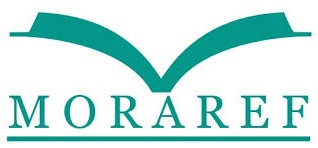Penerapan Algoritma K-Nearest Neighbors (KNN) pada Aplikasi Web Menggunakan Framework Django Untuk Seleksi Anggota BEM
(1) * Sunardi Sunardi
 (Universitas Ibrahimy)
(Universitas Ibrahimy) Indonesia
(*) Corresponding Author
AbstractThe Student Executive Board (BEM) has an important role in bridging communication between students and the university and advocating for student interests. In carrying out its duties, BEM requires members who are competent, highly dedicated, and able to work professionally in accordance with the organization's vision and mission. However, the BEM member selection process, especially in the selection stage carried out by the BEM chairman through a series of tests, is still carried out manually. This selection method has various obstacles, such as lack of transparency, subjective bias, and lack of efficiency in decision making. Therefore, this study proposes the application of the K-Nearest Neighbors (KNN) algorithm in a web application based on the Django Framework to help the BEM member selection process more objectively and systematically. The KNN algorithm is applied to classify prospective members based on various relevant attributes, such as academic test results, organizational experience, leadership skills, and level of participation in student activities. With this web-based system, it is hoped that member selection can run more transparently, accurately, and quickly compared to manual methods. System testing shows that this application is able to increase selection efficiency with more measurable results and a user satisfaction level of 93.2%. In addition, the implementation of this system also aims to improve professionalism and effectiveness in the management of student organizations, so that BEM can carry out its role more optimally in developing student leadership character and supporting the creation of a more dynamic and innovative academic environment. |
Keywords
Full Text: PDF
Refbacks
- There are currently no refbacks.
Copyright (c) 2025 Sunardi Sunardi

This work is licensed under a Creative Commons Attribution-ShareAlike 4.0 International License.
This ejournal system and its contents are licensed under
a Creative Commons Attribution-ShareAlike 4.0 International License








.png)









